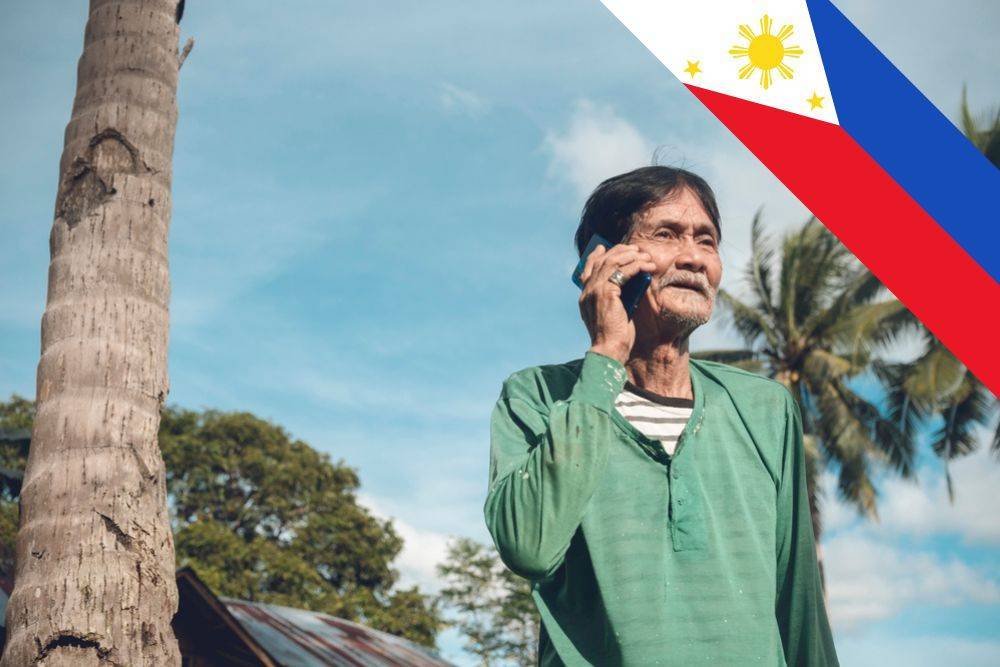Respiratory syncytial virus (RSV) poses significant health risks for senior citizens, particularly those with weakened immune systems.
According to Dr. Rontgene Solante, president of the Philippine College of Physicians, RSV can lead to severe respiratory infections, especially in older adults. During a media panel in Taguig City, he emphasised that one out of three elderly patients hospitalised due to RSV may die within a year after discharge. This alarming statistic underscores the need for increased awareness and preventive measures.
Transmission and Symptoms
RSV is a common and highly contagious virus. It spreads through coughing and sneezing, with infected individuals typically contagious for three to eight days. Symptoms range from mild, such as cough, colds, and fever, to severe, potentially life-threatening conditions. The elderly are particularly vulnerable due to their generally weaker immune systems and the presence of other health conditions. The virus can lead to bronchitis and pneumonia, which are especially dangerous for older adults.
Seasonality and Increased Risk
The RSV season in the Philippines spans from September to February, peaking between October and December. Dr Solante highlighted that easing Covid-19 hygiene protocols, such as mask-wearing, has increased the population’s susceptibility to RSV. The virus exacerbates co-morbidities like asthma, heart disease, diabetes, and chronic obstructive pulmonary disease (COPD), significantly increasing hospitalisation risks. This seasonality necessitates timely preventive measures, particularly vaccination and heightened hygiene practices during these months.
Lack of Targeted Treatment
Pulmonary expert Dr Lenora Fernandez pointed out the absence of targeted treatments for RSV in adults, particularly the elderly. Instead, supportive care measures are recommended. These include vaccination, regular hand washing, mask-wearing, staying hydrated, avoiding smoking and vaping, maintaining a nutritious diet, and engaging in regular exercise to prevent RSV infections. Dr. Fernandez also mentioned the importance of early detection and supportive therapies to manage symptoms and prevent complications.
Promoting Healthy Aging
Geriatrics expert Dr Lourdes Carolina Dumlao stressed that healthy ageing is achievable despite the threat of infections like RSV. The World Health Organisation defines healthy ageing as maintaining functionality and independence, not merely the absence of disease. Vaccination against vaccine-preventable diseases plays a crucial role in protecting senior citizens from severe RSV infections. Dr. Dumlao emphasised that a holistic approach, including mental and physical health, is essential for the well-being of older adults.
Government and Community Response
The government is actively promoting awareness and preventive measures against RSV. This includes encouraging vaccination and enhancing public health campaigns. Community initiatives focus on supporting the elderly through education on hygiene practices and the importance of vaccinations. Local health centres are being equipped to provide better care and resources to manage RSV cases. Additionally, collaborations with non-governmental organisations aim to extend support to remote and underserved communities.
The Role of Family and Caregivers
Family members and caregivers play a vital role in protecting the elderly from RSV. Ensuring that seniors adhere to preventive measures, such as vaccination and proper hygiene practices, can significantly reduce their risk of infection. Caregivers are also encouraged to monitor the health of elderly individuals closely, watching for early signs of respiratory illness and seeking medical advice promptly. Education programs for caregivers can enhance their ability to provide effective care and support.
Research and Future Directions
Ongoing research is crucial to understanding and combating RSV. Scientists are investigating the virus’s behaviour, transmission patterns, and potential treatments. Clinical trials for RSV vaccines and antiviral drugs are underway, with the hope of providing better protection for at-risk populations. Public health experts advocate for increased funding and resources to support these research efforts, which are vital for developing effective strategies against RSV.
Conclusion
RSV remains a significant health concern for senior citizens, especially during its peak season. With proper preventive measures, awareness, and community support, the risks associated with RSV can be mitigated, ensuring the health and well-being of the elderly population. By fostering a collaborative approach involving government agencies, healthcare providers, families, and communities, it is possible to safeguard seniors from the dangers of RSV and promote healthy aging.
Have a pressing question for a doctor? Medical Channel Asia has launched a community forum page where you can get questions answered by a medical specialist. Visit the community forum here.

